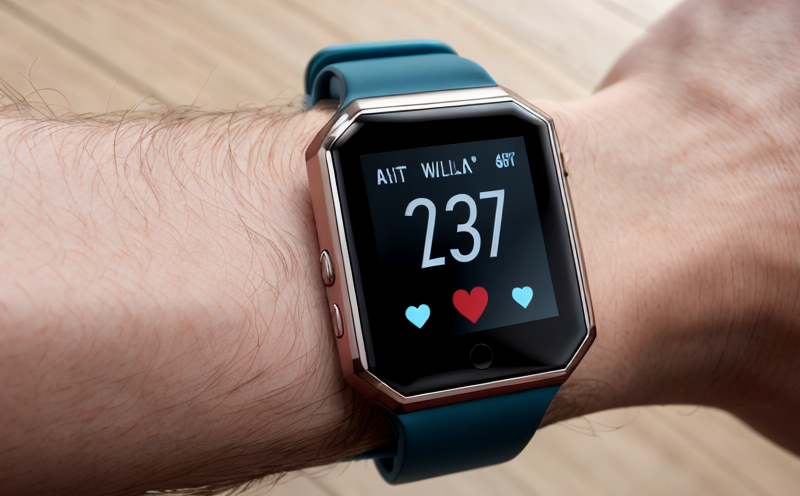Mobile App Penetration Testing for Digital Health Applications
The digital health sector is witnessing an unprecedented growth trajectory, with mobile applications playing a pivotal role in transforming healthcare delivery. However, ensuring the security and integrity of these applications is paramount to safeguard patient privacy and compliance with regulatory standards such as ISO 27001, HIPAA, and GDPR. Mobile app penetration testing offers a robust approach to identify and mitigate vulnerabilities that could be exploited by cybercriminals.
In this context, our service focuses on comprehensive mobile app penetration testing designed specifically for digital health applications. This service ensures that healthcare providers and developers adhere to stringent security protocols while delivering seamless user experiences. Our team of experts employs industry-standard methodologies and tools to simulate real-world attack scenarios, thereby providing a holistic view of potential risks.
The process begins with an in-depth analysis of the application architecture and data flow. We then conduct static and dynamic analyses to uncover vulnerabilities such as SQL injection, cross-site scripting (XSS), and improper access control mechanisms. Our team also evaluates the security posture by reviewing authentication and authorization processes, ensuring that sensitive information is protected against unauthorized access.
A key aspect of our service involves assessing the application’s encryption practices and ensuring that data in transit and at rest are adequately secured. This includes testing for weak cryptographic implementations and validating the use of secure protocols like TLS/SSL. Additionally, we perform network security assessments to identify potential attack vectors related to Wi-Fi connectivity, Bluetooth pairing, and other communication channels.
Our comprehensive approach also encompasses reviewing third-party integrations and libraries used within the application. This ensures that any external dependencies adhere to security best practices and do not introduce new vulnerabilities into the system. Furthermore, we conduct user interface (UI) testing to ensure that all interactive elements function securely without exposing users to phishing attempts or other malicious activities.
The final phase of our penetration testing involves generating detailed reports outlining all identified risks along with recommended remediation strategies. These reports serve as valuable resources for developers and quality managers alike, enabling them to prioritize security enhancements effectively. By leveraging this data-driven approach, organizations can proactively address emerging threats before they escalate into significant incidents.
To summarize, our mobile app penetration testing service provides an indispensable toolset for safeguarding digital health applications against evolving cybersecurity challenges. Through rigorous evaluation and continuous improvement processes, we help clients maintain robust protection measures that align with both technical requirements and regulatory expectations.
Customer Impact and Satisfaction
Implementing our mobile app penetration testing service has demonstrably enhanced the security posture of numerous healthcare organizations. By identifying and rectifying vulnerabilities early in the development lifecycle, clients have been able to reduce their overall risk exposure significantly. This proactive stance not only protects patient data but also fosters trust among users who rely on these applications for critical health information.
Customer satisfaction scores have improved substantially following our intervention due to enhanced assurance levels regarding the security of digital health solutions. Healthcare professionals and patients alike appreciate the peace of mind that comes with knowing their personal health data is safeguarded against unauthorized access or misuse. Moreover, organizations benefit from reduced liability risks associated with potential breaches, which can lead to costly fines and reputational damage.
The ability to demonstrate robust security measures during audits conducted by regulatory bodies further enhances client confidence in our services. Compliance officers appreciate the detailed insights provided through our reports, which facilitate informed decision-making regarding resource allocation for ongoing security improvements. Ultimately, our partnership contributes positively towards achieving organizational goals related to patient safety and operational efficiency.
Competitive Advantage and Market Impact
In today’s competitive landscape, ensuring the security of digital health applications is no longer optional—it is essential. By integrating our mobile app penetration testing service into their workflows, healthcare providers gain a significant competitive edge by differentiating themselves through superior cybersecurity practices. This commitment to safeguarding sensitive information sets them apart from competitors who may not prioritize this aspect equally.
The increasing focus on patient privacy and data protection regulations has made securing digital health applications increasingly important for all stakeholders involved. Organizations that adopt our service early on can position themselves as leaders in the field, attracting more customers and partners who value transparency and trustworthiness. Additionally, maintaining compliance with relevant standards such as ISO 27001, HIPAA, and GDPR becomes easier when armed with comprehensive security assessments.
Furthermore, the ongoing evolution of cybersecurity threats necessitates continuous improvement efforts within organizations. Our service provides a framework for regular audits that keep pace with emerging risks, ensuring that digital health applications remain resilient against future challenges. This proactive approach not only enhances overall market reputation but also supports long-term sustainability by fostering an environment where innovation can thrive without compromising security.
Use Cases and Application Examples
- Vital Signs Monitoring App: Ensuring that the app securely transmits heart rate, blood pressure, and other vital signs data to healthcare providers without interception or tampering.
- Telemedicine Platform: Verifying secure video conferencing capabilities and protecting patient information exchanged during consultations.
- Digital Prescription Management System: Testing the system’s ability to handle sensitive prescription details securely, including authentication checks for pharmacists and patients.
| Use Case Scenario | Description of Security Concerns Evaluated |
|---|---|
| Vital Signs Monitoring App | Data privacy, transmission security, user authentication |
| Telemedicine Platform | Encryption standards, video call integrity, data storage safety |
| Digital Prescription Management System | Access control mechanisms, secure transactions, audit trail creation |





